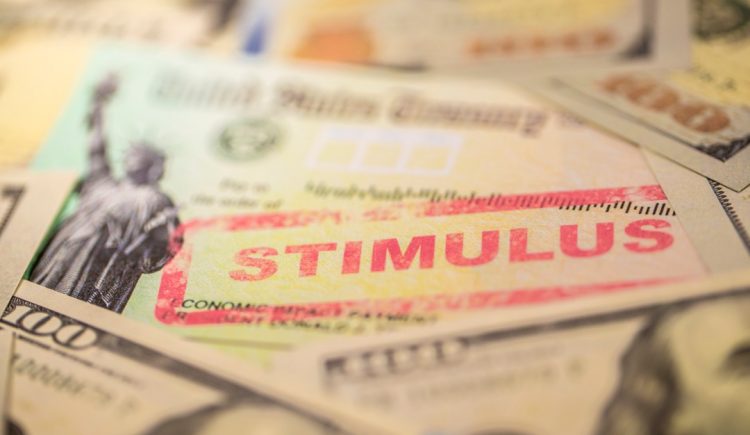Congress just passed a $1.9 trillion COVID-19 relief package—the American Rescue Plan—that will send another round of direct payments to American taxpayers, as well as extend the increased unemployment benefits and build on other programs previously enacted.
The Senate voted 50-49 to approve the plan on Saturday, March 6. Today the House voted 220-211 in favor of the relief plan. The bill is now heading to the desk of President Biden for a final signature before it becomes law.
What to Expect:
Stimulus Checks
American taxpayers who earn up to $75K per year (or $150K for married couples) will be eligible to receive the full payment of $1,400 per individual. However, this new round of stimulus payments has a lower threshold before the funds are phased out—those who earn more than $80K (or more than $160K per married couple) will not be receiving stimulus funds. Unlike the previous two rounds, adult dependents—and that includes college students—are expected to be eligible for these relief payments.
The Internal Revenue Service (IRS) will be using tax return information to calculate payment eligibility. For those who have not yet filed their 2020 tax return, the IRS will calculate funds based on their 2019 tax return.
Keep in mind: If you are a single filer who made more than $80K in 2020, but end up making less than that in 2021, you can claim an Economic Impact Payment based on your 2021 income when you file a tax return during next year’s tax season. The same is true for married couples who make less than $160,000 in 2021.
Disbursement of checks will follow regular protocol: those who set up direct deposit for their tax payments/reimbursements should receive the money directly in their bank account. All others will receive a mailed check.
Unemployment Benefits
The spending bill extends the additional federal unemployment benefits of $300 per week through Sept. 6. The first $10,200 of unemployment benefits received in 2020 are tax-free for households that earn less than $150,000 annually.
Funds and benefit enhancements from December’s $900 billion relief package were set to run out in mid-March.
Housing Aid
The bill has about $20 billion set aside to assist state and local governments with low-income households to cover overdue rent, as well as provide relief on rent payments and utility bills. In addition, $10 billion will go toward assisting struggling homeowners with their mortgage, utility and property tax payments. And $5 billion will be allocated to help states and cities assist homeless individuals, with another $5 billion going toward vouchers for emergency housing.
Small Business
This package expands eligibility for the Paycheck Protection Program (PPP), allowing more nonprofit companies to apply. Additionally, it tops off the program’s funds and also adds $15 billion in emergency grants.
ObamaCare Subsidies
The bill increases subsidies through 2022, allowing individuals who are earning up to 150% of the federal poverty level to purchase insurance plans with premiums subsidized by the government. Many self-employed workers and small business owners hit with high insurance premiums will be eligible.
Child Tax Credits
The bill increases the existing child tax credit to $3,000 for children aged 6 – 17 and $3,600 for children under six years old, and makes the credit fully refundable. The amount is gradually reduced for married couples earning over $150,000 (and individuals earning more than $75,000) per year. Families eligible for the full credit would receive payments of $300 per child for young children and $250 for older children, per month, from July 2021 through the end of the year.
Earned Income Tax Credit
This stimulus package expands the eligibility and amount for the earned income tax credit (EITC), allowing workers without children, and married but separated spouses, to claim the credit on separate returns in certain situations.
Childcare
The package allotted $15 billion for the childcare and development block grant program, which provides grants to states in order to help low-income families afford childcare. About $24 billion going to states can also be put toward grants for childcare providers.
Pensions
The bill includes $86 billion to be put toward multi-employer pension funds.
Transportation
The bill allotted $30 billion for local subway and bus systems that have been significantly impacted by revenue dips due to the virus. Additionally, $8 billion is provided for airports, $1.5 billion for furloughed Amtrak workers and $3 billion for wages at aerospace companies.
State Assistance
The bill is set to send $360 billion in aid to cities and states, $130 billion to schools to help them reopen and $10 billion to a national vaccination program, which includes expanded coronavirus testing.
What the Industry Is Saying:
“While some notable changes were made as this bill worked its way through the Senate, all of the major provisions important to real estate remained intact. It continues all of the successful and important provisions of the CARES Act, supporting small businesses, including the self-employed, independent contractors and sole proprietors. One-fifth of our members have reported using a PPP loan, so this support has been critical.” — Shannon McGahn, Chief Advocacy Officer, National Association of REALTORS®
“The fiscal stimulus will accelerate the recovery and get more people back to work sooner. That will help families that have been hit hard by the pandemic and recession, and enable them to get their financial house in order and make mortgage and rent payments.” — Frank Nothaft, Chief Economist, CoreLogic
“MBA commends the passage of the American Rescue Plan Act of 2021, by both the Senate and House, which will deliver essential relief to millions of individuals and families affected by the COVID-19 pandemic. Specifically, we appreciate the bill’s provisions that provide additional assistance to tenants, homeowners and businesses—particularly those in the retail and hospitality sectors. We look forward to continuing to work with Congress, policymakers and other stakeholders on ways to help consumers and strengthen the overall housing and rental markets. MBA now calls on President Biden to quickly sign this bill into law.” — Robert D. Broeksmit, President, Mortgage Bankers Association
 Liz Dominguez is RISMedia’s senior online editor. Email her your real estate news ideas to lizd@rismedia.com.
Liz Dominguez is RISMedia’s senior online editor. Email her your real estate news ideas to lizd@rismedia.com.











